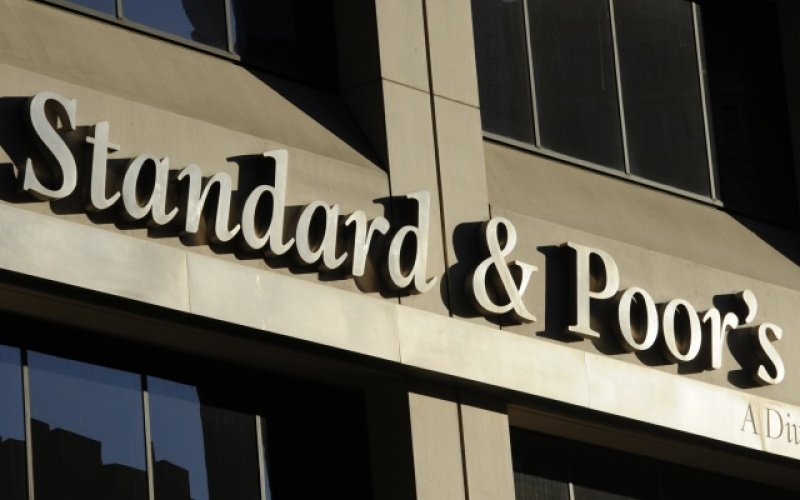Ghana’s economic outlook has been revised from stable to positive by rating agency Standard & Poor’s.
The country’s ‘B-‘ long-term and ‘B’ short-term foreign and local currency sovereign ratings have also been affirmed by the rating agency.
The outlook on the long-term ratings was revised to positive from stable.
S&P said the revision was informed by measures being undertaken by the Government of Ghana to strengthen the economy of the West African country.
“We expect Ghana’s new administration to implement numerous measures that would help strengthen public finances from their current very weak level,” S&P said.
Furthermore, increased oil production which is helping the government to implement corrective fiscal economic measures influenced the revision.
S&P said the positive outlook reflects that “we could raise the ratings over the next year if Ghana implements and adheres to measures that sustainably alleviate the substantial pressure on public finances if monetary policy transmission materially improves and if external weaknesses abate”.
“Our positive outlook reflects several developments, many of which are based on the new administration tackling the above issues. At the same time, we expect the underlying growth environment to be supportive of their efforts,” the agency added.
S&P maintained that related export receipts should help reduce current account deficits and improve foreign exchange reserve levels, particularly as the government’s debt re-profiling exercises are leading to additional portfolio inflows.
“We expect the extended credit facility from the International Monetary Fund (IMF) to help support these efforts” it added.
Reasons for keeping Ghana’s ratings at “B-”
In its assessment, S&P explained that the ‘B-‘ status was as a result of some issues it had with the country’s finances now, even though it is optimistic of things improving.
“State-owned organisations, particularly in the energy sector, have a substantial debt stock that we believe could pose a contingent liability to the government. Late payments from this sector have contributed to an accumulation of nonperforming loans (NPLs) in the banking sector,” it said.
Warnings
Standard and Poor’s, however, maintained they could revise the outlook to stable if Ghana’s economic growth is materially lower than they expect “because we would view this as a potential complication for establishing a firm fiscal consolidation path”.
“We could also lower the ratings if domestic or external debt financing conditions worsen, if the fiscal consolidation trend reverses, or if international reserves decline further,” it added.
History
Standard & Poor’s credit rating for Ghana stands at B- with a positive outlook, while Moody’s credit rating for Ghana was last set at B3 with a stable outlook. Fitch’s credit rating for Ghana was last reported at B with a stable outlook.
For some, this showed that all the rating agencies have adjusted their position on Ghana’s creditworthiness over the past the last 8 months.
Fitch recently moved the country from negative to positive with Moody’s also taking a similar action. Ghana is currently in the ‘B’ range which is highly speculative.
Source:Ghana/AccraFM.com

































